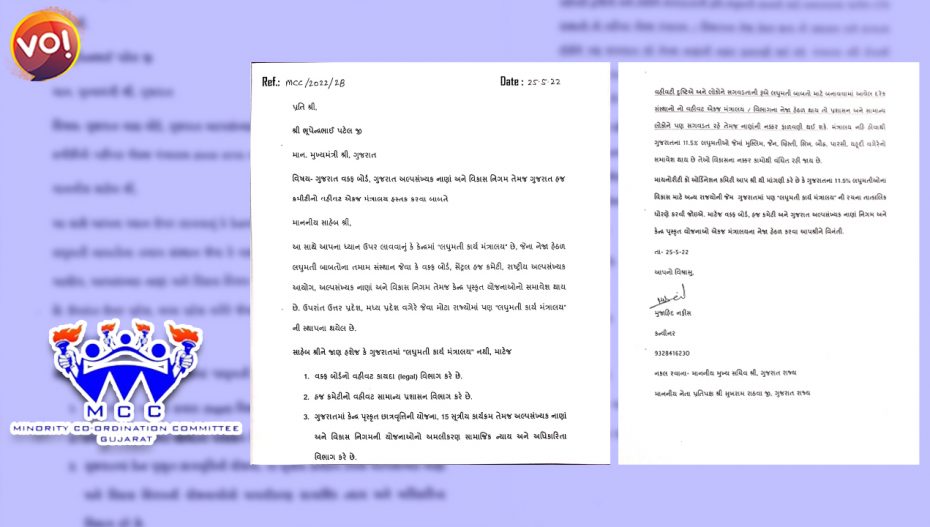A Gujarat-based organisation working for the welfare of minorities has written a letter to Chief Minister Bhupendra Patel urging him to merge the Gujarat Waqf Board, Gujarat Minority Finance and Development Corporation and Gujarat Haj Committee under a single dedicated ministry instead of several departments.
The Minority Coordination Committee has pointed out that, unlike many states, Gujarat does not have a separate ministry for minority affairs. As a result, welfare works related to minorities are split between three departments.
The MCC stressed that from an administrative standpoint and for the convenience of the people if all minority-related institutions are administered under the auspices of a single ministry/department, it would help the cause better.
This would also enable the earmarking of a dedicated budget for such a ministry. As of now, 11.5 per cent of Gujarat’s minorities, including Muslims, Jains, Christians, Sikhs, Buddhists, Parsis, Jews, and others, are denied benefits of specific development projects since there is no ministry for them.
Mujahid Nafees, the convener of the Minority Coordination Committee, has written to the Chief Minister, Chief Secretary Pankaj Kumar and Leader of the Opposition Sukhram Rathwa, has demanded that a Ministry of Minority Affairs be established in Gujarat, as in other states, immediately.
“We suggest that the Waqf Board, Haj Committee, Gujarat Minority Finance Corporation, and centrally sanctioned programmes be consolidated into one ministry”, Nafees said.
Currently, these bodies fall under three departments:
1. The Waqf Board is administered by the Legal Department.
2. The Haj Committee is administered by the General Administration Department.
3. In Gujarat, the Department of Social Justice and Empowerment implements the Centre-sponsored Scholarship Scheme, a 15-point program as well as the schemes of Minority Finance and Development Corporation.
The Government of India formed the Central Waqf Council in 1964 under the Waqf Act, 1954 (now a subsection of the Waqf Act, 1995) to advise it on matters about the functioning of the State Waqf Boards and proper administration of the Waqfs in the country.
Waqf is a permanent donation by philanthropists of movable or immovable property for religious, pious, or charitable purposes as defined by Muslim Law.













